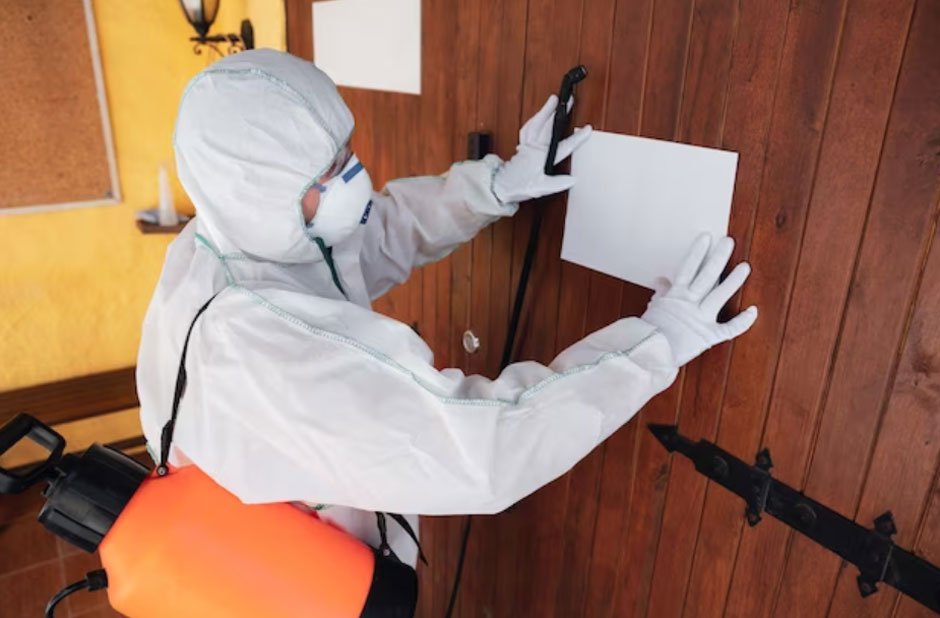Pest infestations can be a real headache for homeowners and businesses alike. From tiny ants to destructive termites, these unwanted guests can cause significant damage, spread diseases, and disrupt daily operations. That’s where professional pest control technicians come into play. For those seeking top-notch solutions, an internet search for “advanced services pest control” can lead to experts offering cutting-edge treatments. But what do these experts go through before they can take on your pesky pest problems?
In this article, we’ll explore the rigorous training and certification process that these experts undergo to ensure they’re equipped to handle even the toughest pest problems effectively and safely. Buckle up, because we’re about to dive into the fascinating world of pest control!
KEY TAKEAWAYS
- Pest control technicians undergo extensive education, training, and certification to become experts in their field.
- On-the-job training and apprenticeships provide hands-on experience in identifying and treating pest infestations.
- Specialized certifications and continuing education keep technicians up-to-date on the latest pest control methods and technologies.
- Professional development opportunities foster knowledge-sharing and mentorship within the pest control industry.
Educational Requirements
Before even stepping foot into the field, aspiring pest control technicians need to have a solid educational foundation. While a high school diploma or equivalent (GED) is typically the minimum requirement, many professionals pursue coursework in biology, chemistry, and environmental studies to gain a deeper understanding of the scientific principles behind pest control.
This knowledge is crucial for grasping the behavior and life cycles of various pests, as well as the chemical compositions and safe handling of pesticides. After all, you can’t wage an effective war against pests without understanding your enemy and the tools at your disposal, right?
On-the-Job Training
Book smarts are just the beginning, though. Pest control technicians also undergo extensive on-the-job training, often in the form of apprenticeships or shadowing experienced professionals. It’s like getting a front-row seat to the action, where they can witness firsthand how seasoned technicians identify and treat different pest infestations.
During this hands-on training, they’ll learn the proper use of specialized equipment and tools, as well as crucial safety protocols and risk management strategies. Trust me, you don’t want to be the one fumbling around with pesticides or getting too close and personal with a swarm of angry wasps!
Certification Process
Once the theoretical and practical foundations are in place, it’s time to earn those official certifications. Many states have specific licensing requirements that pest control technicians must meet, which often involve passing comprehensive exams to demonstrate their knowledge and skills.
But the certification process doesn’t stop there. National organizations, such as the Associate Certified Entomologist or the Certified Professional Insect Control, offer additional certifications that validate a technician’s expertise. And let’s not forget the importance of continuing education—these professionals must stay up-to-date with the latest industry developments and renew their certifications periodically.
Specialized Training
While general pest control knowledge is essential, some technicians opt to specialize in niche areas, such as termite control, bed bug management, or wildlife removal. These specialized fields require advanced training in cutting-edge techniques and technologies, ensuring that the technicians are equipped to handle even the most stubborn or complex infestations.
Imagine being the go-to expert for termite elimination, armed with the latest radar detection tools and eco-friendly baiting systems. Or picture yourself as the bed bug whisperer, with an arsenal of heat treatment equipment and insecticide-resistant monitoring devices. Pretty cool, right?
Professional Development
But even with all that training and certification under their belt, the learning never stops for pest control professionals. Ongoing education and training opportunities, industry events, and networking sessions allow them to stay ahead of the curve and continuously enhance their skills.
It’s not just about keeping up with new pest control methods or products; it’s also about fostering a sense of community and mentorship within the industry. Seasoned technicians can share their wisdom with newcomers, while up-and-comers can learn from the veterans’ wealth of experience. It’s a beautiful cycle of knowledge-sharing and continuous improvement.
Closing Thoughts
From the classroom to the field and beyond, pest control technicians undergo a rigorous journey to become true experts in their craft. Their dedication to continuous learning, specialized training, and adherence to stringent certification standards ensures that they’re equipped to tackle even the most daunting pest problems with professionalism and expertise. So, the next time you encounter an unwanted critter in your home or business, you know who to call—the certified, highly trained pest control professionals.






